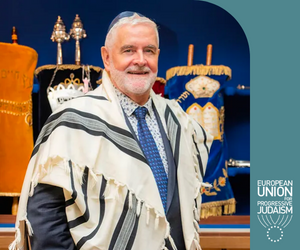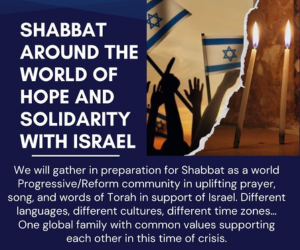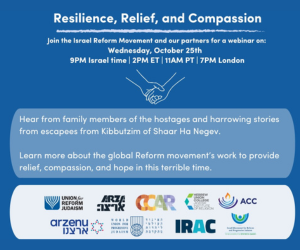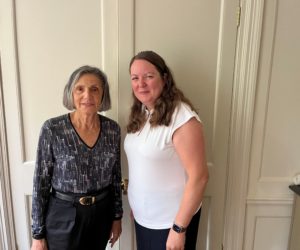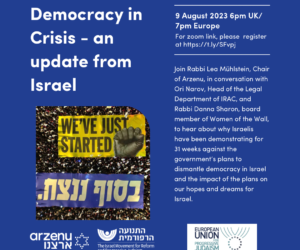Should Jews Help Non-Jewish Refugees?
By Bill Echikson, EUPJ Brussels Director
After a long, sad history fleeing pogroms and persecution, Jews are lucky to live in an era where this danger has, for the most part, vanished. Almost all of us live where we want, at home, abroad, or in Israel.
Others are less fortunate. The number of refugees fleeing war, famine, and other disasters is at a historic high. How should Jews respond? For our second European Union for Progressive Judaism webcast, I spoke with Ilan Cohn, director of HIAS Europe in Brussels.
HIAS, founded in 1881 as the Hebrew Immigrant Aid Society, assisted Jews fleeing Russia and Eastern Europe. It evacuated displaced person camps in Europe and, in two modern waves, the Jews of the former Soviet Union and helped them find their way to freedom.
HIAS still continues to advocate for Jews in need whenever necessary. Each year, it militates to extend the Lautenberg Amendment, enacted in 1990 in order to assist Jews and other religious minorities migrating from Iran and the former Soviet Union. As the worldwide refugee situation changes, the Lautenberg Amendment has been expanded to include persecuted religious minorities in other countries, including Jews, Christians, and Baha’is from Iran.
HIAS currently supports mostly non-Jews. It helps refugees and asylum seekers on the Greek island of Lesbos, challenging European countries to take their fair share of responsibility. It opposes the Trump Administration’s anti-immigrant rhetoric and drastic cuts in asylum approvals.
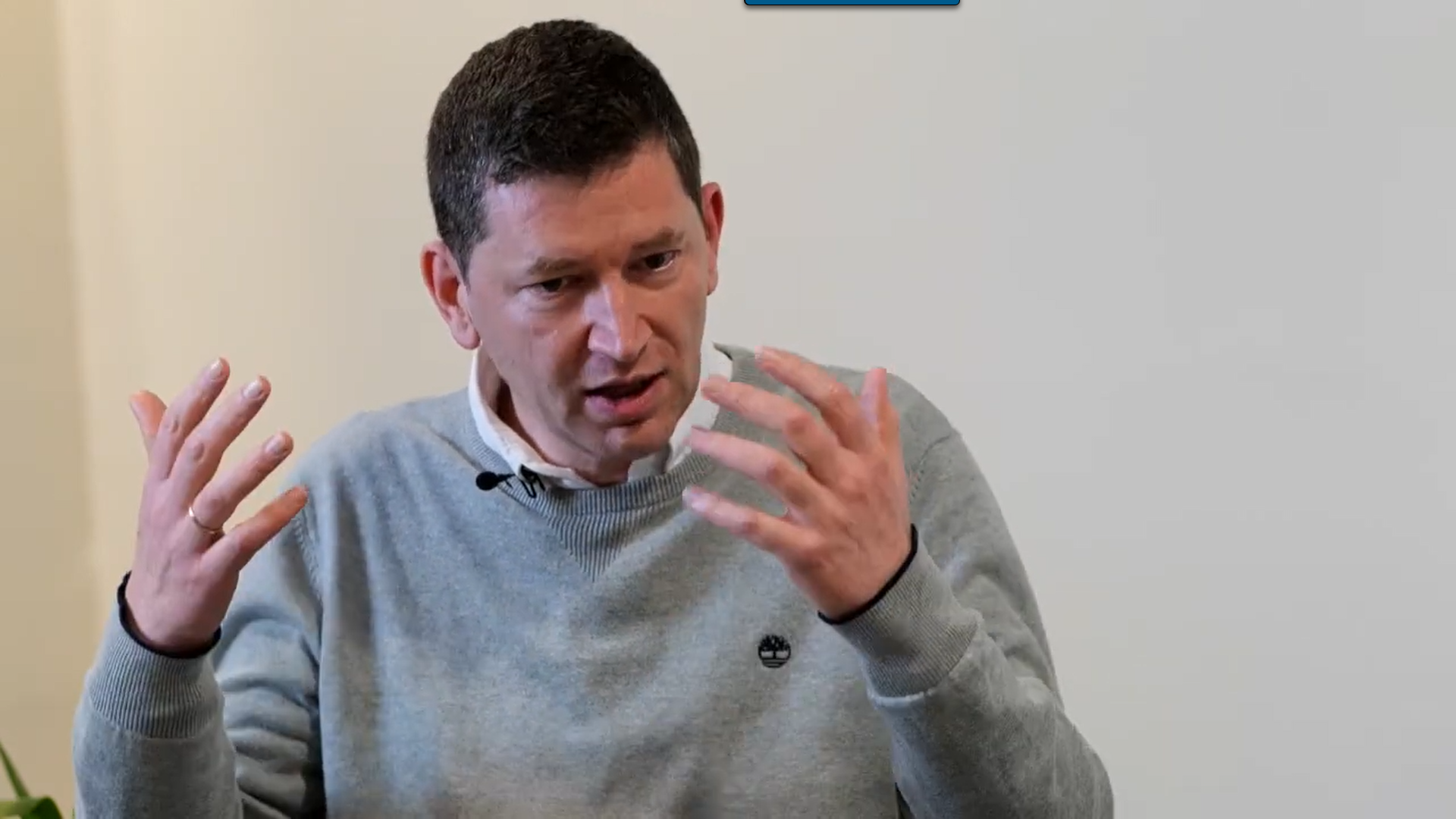
Ilan Cohn, director, HIAS Europe
It also works with the Israeli government. Israel was one of the first countries to ratify the 1951 Refugee Convention. HIAS has partnered with Israeli lawyers and Israeli human rights activists and legal aid organizations to ensure that Jerusalem lives up to its obligations to asylum seekers.
Among some Jews, these new missions generate controversy. Critics pounced on antisemitic comments by a board member of HIAS partner, Islamic Relief. But Ilan points out that the Islamic Relief severed all ties with the offender and apologized. “We are proud of this innovative Jewish-Muslim partnership,” he says. “It demonstrated how our two faiths share values and can work together to assist the most vulnerable.”
Ilan’s personal passion for helping refugees or vulnerable migrants stems from his own “wandering” Jewish background. Born in the Netherlands, he studied in the UK and Israel before working on migration issues for a variety of intergovernmental organizations. He worked in Moldova. He worked in the Western Balkans, Israel, Bangkok and Warsaw, arriving in Brussels a year ago to launch HIAS Europe.
Even though Jews are no longer forced to leave their homes, Ilan says they understand the threat of hatred, bigotry, and xenophobia. Jews have a responsibility to join other faith groups and aid those in distress, he says. In his view, HIAS works in accordance with Tikkun Olam (repairing the world), which is a major part of our Jewish DNA.
Like almost all other life in Europe, COVID-19 has presented additional challenges. HIAS’s Refugee Shabbat program for 2020 was canceled in some places or moved online in others. The Refugee Aid Service Corps, a program placing European Jewish student leaders in HIAS field offices in Africa and Latin America over the summer months, was frozen.
Most important, the pandemic puts refugees at risk. They don’t have the luxury of social distancing., They live in overcrowded and unhygienic conditions and are at great risk. HIAS Greece joined other leading humanitarian agencies in calling on the Greek government to move asylum seekers to safety.
The pandemic risks inflaming antisemitism. Throughout our history, Ilan notes that we often have been blamed for the plague, or Black Death, which devastated the people of Europe in the 14th century.
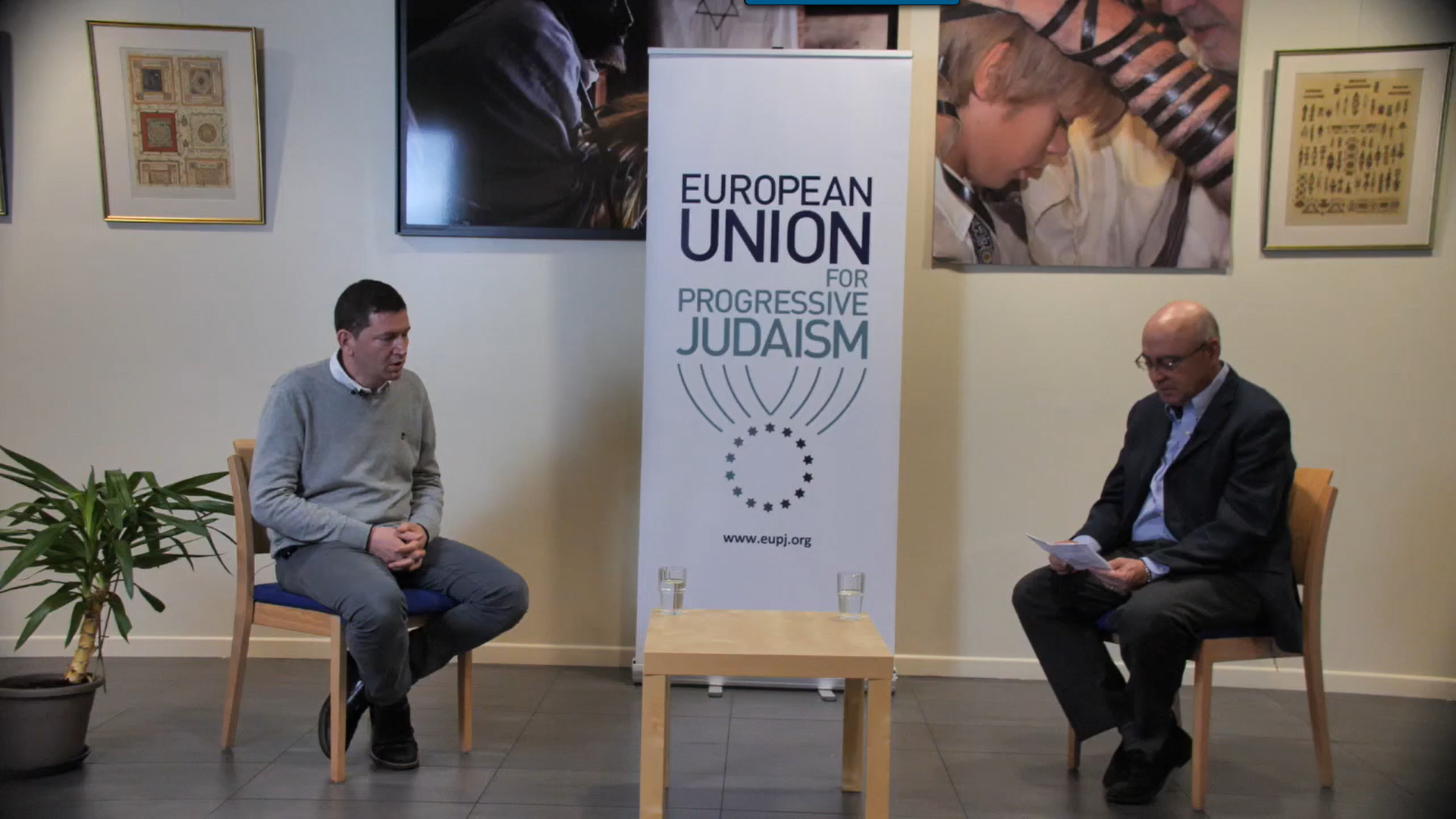
Bill Echikson, director of EUPJ Brussels, interviewing Ilan Cohn from HIAS
The conversation between Ilan and myself took place just before the U.S. election. After speaking with Ilan, I took part in a debate on Brussels Radio Judaica. My four other panelists all supported Donald Trump. Some backed his strong “support” for Israel. Others agreed with a world view that Jews are only safe by aligning with dictators and denouncing democracy, and of course, turning their back on those in need.
For me, this Jews-first ideology translates into Jews alone. As the people who celebrate freedom from Egypt, it goes against my most cherished Jewish beliefs. When I told the Trumpites that 80 percent of American Jews voted for Biden, they scoffed that they were American, not Jewish, first, not “genuine” Jews. Amid this divisive atmosphere, HIAS will never enjoy unanimous support among world Jewry. But its mission to heal and help is as important as ever.
This article was originally published in The Times of Israel.

